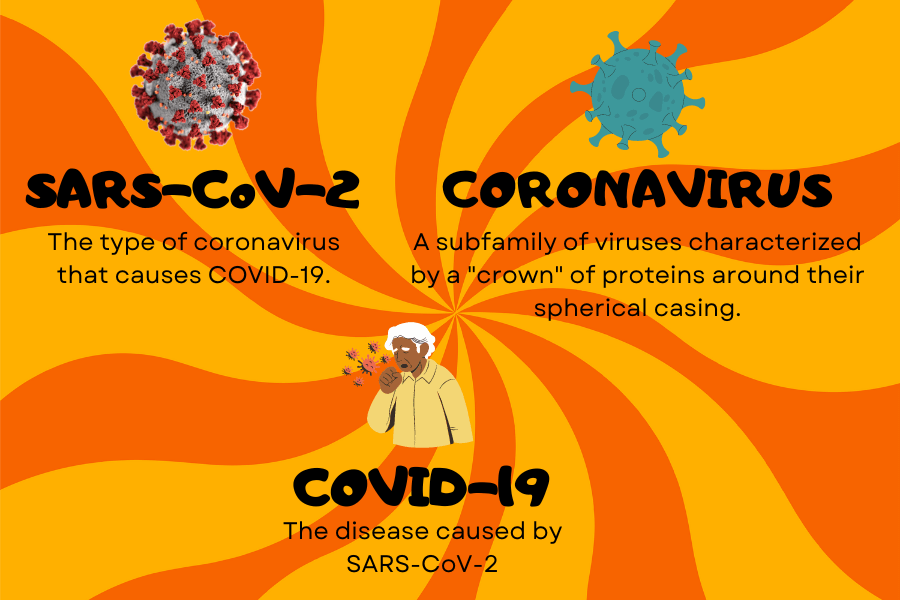Key Takeaways
- Dogs can get the virus that causes COVID-19 but usually don’t show clinical signs 🐶
- Cats are more susceptible than dogs to the disease 🐱
- Canine coronavirus (CCoV) is different from the one causing COVID-19. Instead of coughing, it causes diarrhea 💩
In 2019, the news of a new type of virus made headlines all over the world. The virus caused a global pandemic and resulted in thousands of deaths. Since then, there have been many myths around the disease, some debunked, some still circling around. One of the most common question asked remains: do dogs get COVID?
Even though we’re accustomed to using these three terms interchangeably, they actually mean different things.

Most of us didn’t become familiar with the term “coronavirus” until it swarmed the media in the context of the outbreak around the end of 2019. But did you know that SARS-CoV-2 is just one type of coronavirus? These viruses have been around forever and well-studied by scientists for a few decades. So, what is a coronavirus?
It’s a type of RNA virus that is classified within the family of Coronaviridae. These viruses are typically spherical in shape and have an envelope surrounding their nucleocapsid (the protein shell that contains the viral genome). Corona means “crown” in Latin, and this is in reference to the spikes that are often seen on the surface of the viruses.
These viruses are typically spread through the air, and can cause severe illness, including pneumonia, bronchitis, and even death. The most well-known coronavirus disease is the common cold, which can be caused by various types of viruses.
SARS-CoV-2
SARS-CoV-2 is a specific, novel type of coronavirus that was first identified in 2019. It’s similar to SARS-CoV, the virus that caused the 2002–2004 SARS pandemic. It’s named for Severe Acute Respiratory Syndrome (SARS), which is a viral respiratory illness. The symptoms of SARS include fever, cough, and shortness of breath.
The virus is highly contagious and can be spread through coughing and sneezing. It can also be spread through contact with bodily fluids, such as saliva or mucus, as well as objects or surfaces that have been contaminated with the virus.
COVID-19
COVID-19 is the name given to the disease caused by SARS-CoV-2. It was first identified in 2019 in Wuhan, China. As of January 2023, there have been more than 675 million confirmed cases of COVID-19 reported worldwide, with over 6.7 million deaths. COVID-19 is a serious illness that can cause fever, cough, and breathing problems. In severe cases, it can lead to pneumonia, which can be fatal. But do dogs get COVID? Let’s find out.
Do Dogs Get COVID?
As of now, there is evidence that cats and dogs can indeed get COVID-19. In 2020, two dogs living with infected people in Hong Kong were found to shed the virus but not show clinical signs. Later, a positive dog was reported in North Carolina. This pug did develop respiratory symptoms such as sneezing and coughing, but it’s an isolated case. Usually, the virus is only detected via testing and doesn’t cause the animal to suffer.
Cats are more susceptible to COVID-19 than dogs. Besides, there is no evidence that pets transmit the disease to humans – rather, it happens the other way round. CDC (Centers for Disease Control and Prevention) states that the risk of animals spreading the virus to people remains very low.
Can Dogs Be Infected With the Virus?
Do dogs get COVID at all? While they don’t show severe clinical signs of COVID-19, dogs can still contract the virus that causes it! In fact, animals having contact with people who test positive for SARS-CoV-2 contract it about 30–50% of the time. There have also been a few cases of mild respiratory illness (coughing and sneezing) in dogs infected with this virus. But more often than not, they carry the virus with no symptoms.
Editor’s Note 🪶
There’s also the canine coronavirus (CCoV). It’s very different from the virus that causes COVID-19, so there’s no need for a COVID-19 vaccine for dogs. Canine coronavirus disease is a highly contagious intestinal infection. It causes diarrhea and abdominal discomfort, but fortunately, it can’t be transmitted to people. If your dog has any symptoms of disease, contact your veterinarian.
Why Dogs Don’t Get COVID-19 Symptoms
There are several theories as to why dogs and cats don’t get symptoms like people with COVID-19 do. The most likely one is related to the fact that the virus targets the angiotensin-converting enzyme 2 protein (ACE2). Dogs have a mutation in the gene coding this protein, which renders them immune or resistant to the virus. Cats, on the other hand, don’t have this natural resistance and are more likely to develop COVID-19 when infected.

What to Do If You’re a Dog Owner and Test Positive?
If you’ve tested positive for the virus, there are some important steps to take.
- You should immediately quarantine yourself and avoid direct contact with your dog.
- Avoid contact with other people and animals until you’ve been cleared by a doctor.
- Keep a close eye on your dog’s health in general and call veterinary help if you notice any changes.
By following these steps, you can help ensure that both you and your dog remain safe and healthy during this time.
Do Dogs Get COVID? Final Thoughts
In conclusion, do dogs get COVID? Not really. They can, however, be infected by the virus. It’s still unclear how exactly the virus affects dogs, and more research is needed. What’s known, however, is that they don’t exhibit severe symptoms. Another piece of good news is that it hasn’t been confirmed that dogs can spread the coronavirus to humans. However, it’s still important to take precautions when you’re around a sick dog or person, such as washing your hands regularly and avoiding close contact.

Frequently Asked Questions
How Can I Tell If My Dog Has COVID?
There is usually no way to tell if your dog has contracted the virus. Since they don’t usually exhibit any symptoms, it’s impossible to tell if they are infected unless you take them for a test. The best thing you can do is keep an eye out for any unusual behavior or changes in their health. Some dogs get coronavirus and cough, sneeze, or have fever and shortness of breath. If you notice anything out of the ordinary, contact your veterinarian right away.
How Contagious Is COVID-19 to Dogs?
In about 30–50% of cases, pets living with infected patients will contract the virus. However, transmission from pets to humans is rare. The most important thing you can do to keep your pet safe is to strictly follow the regular safety measures – practice social distancing, wash your hands regularly, avoid contact with other people and animals outside your home, etc.
Should You Stay Away From Pets If You Have COVID-19?
If you want to minimize the risk of transmission, it is best to keep your distance from pets. If you can’t, make sure you always wear a face covering and wash your hands frequently when spending time with them. You should also take extra care to provide for their needs, like changing the litter box or cleaning up after them outside.
What Dog Virus Is Going Around 2022?
In 2022, there were many cases of canine flu reported in the United States. There have also been reports of other types of canine viruses in some areas. To protect your pet from these and any other diseases, make sure their vaccines are up-to-date and visit their veterinarian regularly for checkups. Additionally, keep them away from potentially sick animals.
Similar Posts:
- Do Cats Get Cold? How To Keep a Cat Warm In Winter
- Why Is My Dog Coughing Like Something Is Stuck in His Throat?
- Are Possums Dangerous to Dogs? Do Opossums Attack Pups? Important Facts
- Why Is My Dog Coughing and Gagging?
- Do Dogs Get Headaches? Signs and Symptoms of Canine Headaches and What to Do If Your Pup Suffers from Migraine
- Why Is My Cat Sneezing So Much Suddenly?
- The Thai Cat Breed: Everything You Need to Know About the Classic Siamese Cat Lookalike From Thailand
- Do Dogs Get Pimples? Treating Canine Acne

